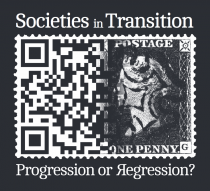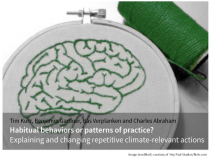- About
- Team
- Projects
- Children and the Environment
- ELiCiT (Exploring lifestyle changes in transition)
- Foundations for Sustainable Living
- HABITs
- Mapping Rebound Effects
- PASSAGE (Prosperity and Sustainability in the Green Economy)
- Policy Dialogue
- Price Responsiveness of Demand in Energy
- Resilience and Sustainable Lifestyles
- Sustainability Transitions in Food Systems
- Sustainable Living in Remote Rural Scotland
- Publications
- News
- Events
New Motherhood: A moment of change in everyday shopping practices?
| Title | New Motherhood: A moment of change in everyday shopping practices? |
| Publication Type | Journal Article |
| Year of Publication | 2014 |
| Authors | Burningham, K, Venn, S, Christie, I, jackson, T, Gatersleben, B |
| Journal | Young Consumers |
| Volume | 15 |
| Issue | 3 |
| Pagination | 211 - 226 |
| Abstract | The purpose of this paper is to draw on data from 16 interviews (two each with eight women) to explore some of the ways in which everyday shopping may change as women become mothers. The meanings, practices and implications of the transition to motherhood have long been a topic for sociological inquiry. Recently, interest has turned to the opportunities offered by this transition for the adoption of more sustainable lifestyles. Becoming a mother is likely to lead to changes in a variety of aspects of everyday life such as travel, leisure, cooking and purchase of consumer goods, all of which have environmental implications. The environmental impacts associated with such changes are complex, and positive moves toward more sustainable activities in one sphere may be offset by less environmentally positive changes elsewhere. This paper focuses on the ways in which modes and meanings of everyday shopping may shift through the transition to mother, and on indicating any potential sustainability implications. The paper explores the adoption of more structured shopping and of shifting the mode of grocery shopping online or offline. The paper draws attention to the way in which practices are embedded and interrelated and argue that more consideration needs to be given to the influence of all household members. |
| URL | http://www.emeraldinsight.com/doi/abs/10.1108/YC-11-2013-00411 |













